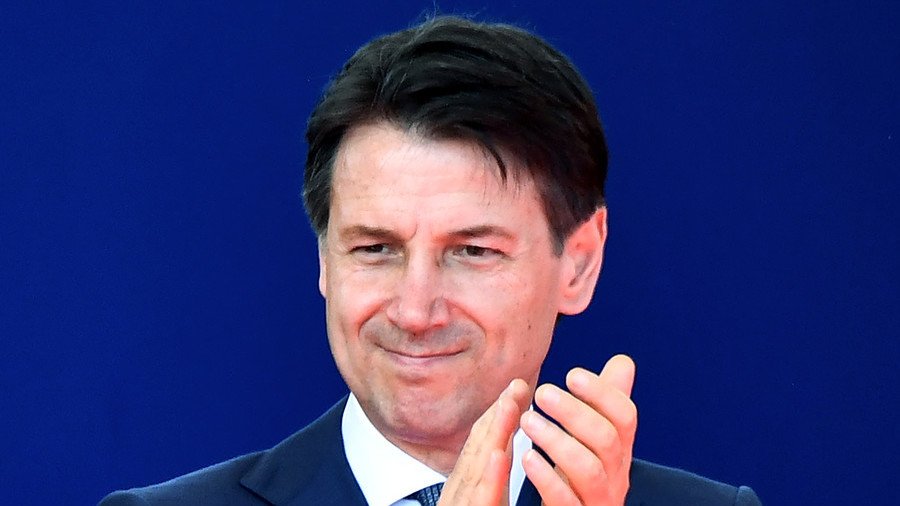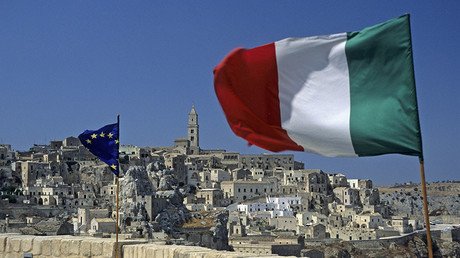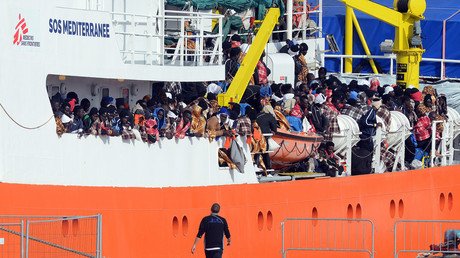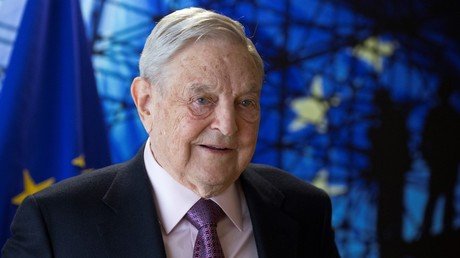Italy’s new prime minister backs easing Russia sanctions

In his first address to the parliament on Tuesday, Italy’s newly sworn-in Prime Minister Giuseppe Conte emphasised his government’s commitment to dialogue with Russia, with an intention to review the EU sanctions policies.
“We will promote openness towards Russia that has in the last years reaffirmed its international role in various geopolitical critical situations,” Conte told the parliament in a plea for confidence for the newly formed Euroskeptic government.
The 53-year-old PM voiced his support for the new Interior Minister Matteo Salvini’s pro-Russia stance, and he promised that Italy will take steps to lift the sanctions against Russia.
“We will promote the revision of the sanctions system, starting with those that threaten Russian society,” the Italian prime minister said. He was heartily applauded by members of the parliament who welcomed his words.
With these words, Conte confirmed the intention that had earlier been outlined in the agreement between Salvini’s League and Luigi Di Maio’s Five Star Movement, the two pillars of the present coalition.
Flanked by Di Maio and Salvini, who didn’t hide their approval of his speech, Conte also reaffirmed another point that had been highlighted by the coalition earlier – Italy intends to remain a NATO member, with the United States as its privileged ally.
In light of the growing criticism of the new government’s anti-immigrant feeling, Conte explained that what the coalition wanted was to “end the immigration business, which has grown out of all proportion under the cloak of fake solidarity.”
“We are not and will never be racists,” he said, but added that the EU has failed to handle the flow of migrants and pinned the blame on the community for having allowed the “egotistical closures” of the boundaries to some European states, which had serious repercussions for Italy.
The closures, combined with the Dublin rule that requires migrants to file for asylum in the first EU state in which they arrive, have forced Italy to receive over 700,000 refugees since 2013.
The new PM vowed to solve this problem by “forcefully seeking to overcome the Dublin rule to have the system of equally shared responsibility and automatic reallocation of asylum-seekers.”
Dispelling rumours of his government’s resentment of the EU leadership, Conte said “Europe is our home,” but added that Italy has to negotiate its own interests in the EU.
With a pronounced emphasis on solving domestic problems, the Euroskeptic government led by Giuseppe Conte will move to introduce a “flat tax” to solve the problem of excessive taxation, which, “combined with an excessive amount of bureaucracy,” has been seriously damaging to the country’s competitiveness. Conte has also promised to introduce pension cuts for members of the parliament and to boost spending on welfare for the poor.
Unlikely as it seemed at first, the League and the Five Star Movement government, which collectively won the majority in nationwide elections on March 4, moved from signaling their unwillingness to cooperate at all to signing an agreement with a plan of action to tackle various internal and international issues. The two party leaders had been impatient to fulfil their election promises in what they defined to be “the government of change.”
Think your friends would be interested? Share this story!
















